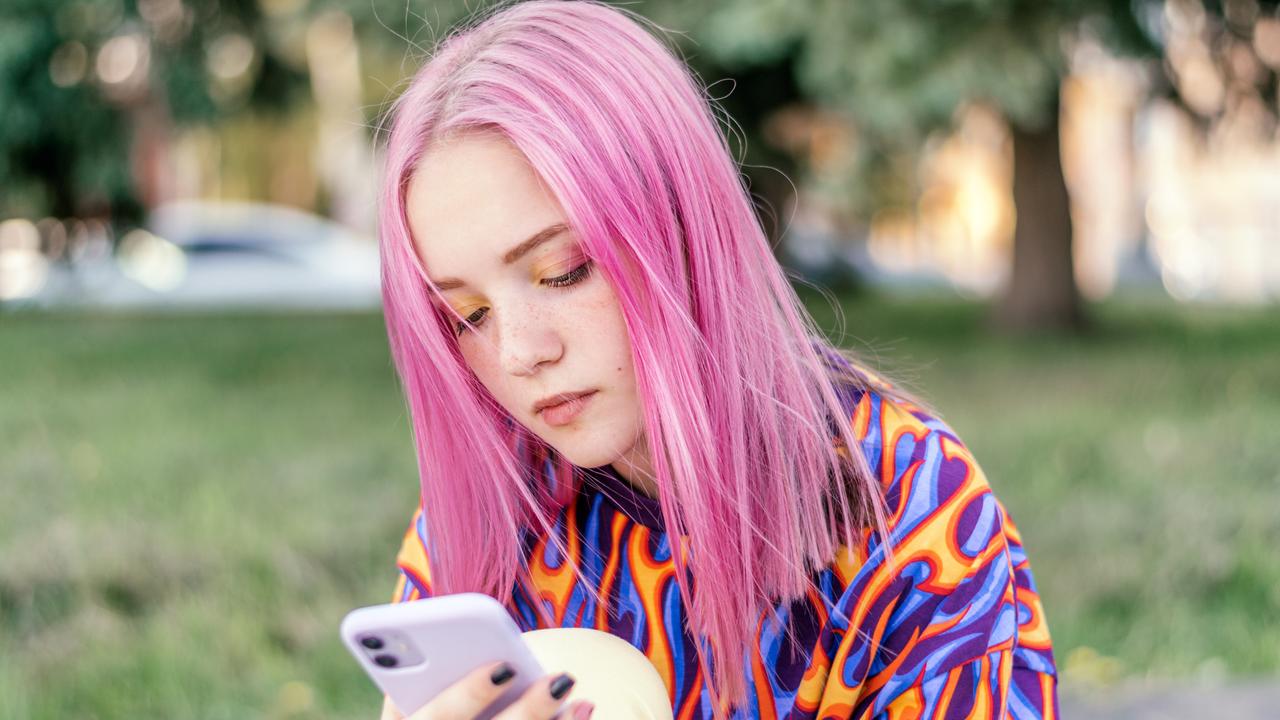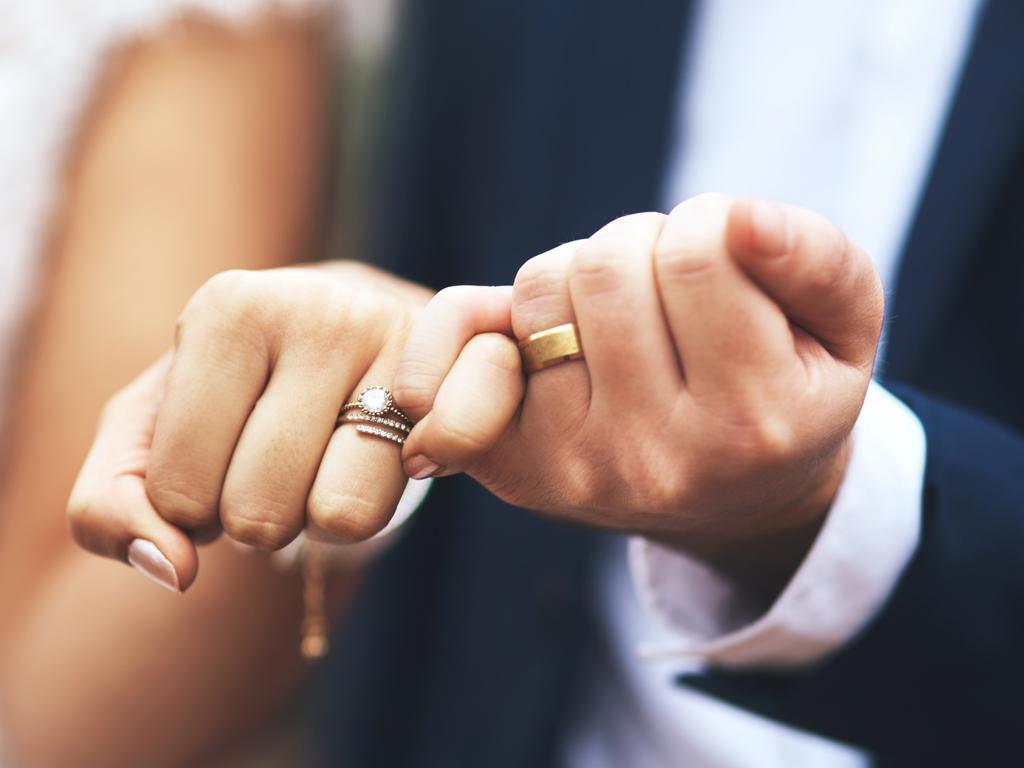Why Gen Z are going to have better marriages than older generations
A new prediction has been made about how the future is going to look for Gen Z – with one very unexpected revelation.

When you think about Gen Z what is the first thing that comes to mind?
Maybe it is their passion for activism, their strong sense of self or maybe it is their penchant for confusing older generations with their bizarre – if not slightly unhinged – phrases.
What probably doesn’t come to mind is their strong marriages.
Well, it turns out, that is exactly one of the key things this generation will be known for in the future, according to Tinder’s new Future of Dating Report 2023.
The report, titled A Renaissance in Dating, Driven by Authenticity, revealed 18 to 25-year-olds were drastically changing the dating game in a way that is going to have a major impact if and when they choose to get married.
The data in the report comes from multiple surveys and studies conducted of thousands of people across Australia, the US, the UK and Canada.

Tinder’s global expert in relationship insights, Paul C. Brunson, believes that Gen Z’s focus on mental health and boundary setting will lay the foundation for them having “the most successful marriages yet”.
“Personal development, emotional wellbeing, and clear communication in relationships are priorities for Gen Z, which leads to stronger and healthier marriages,” he said as part of five predictions he made as part of the report.
“They are, however, less interested in marriage than previous generations, preferring to focus on creating fulfilling lives.”
This prediction is based, not only on the report, but on marriage data from around the world.
Mr Brunson cited recent studies that found within the last three years marital satisfaction in Western countries is lower on average than it was 20 years ago.
But on the other side of this, those in the top 20 per cent of marriages today are more satisfied than at any other point in history, Mr Brunson told news.com.au.
“When they analyse that data, they realise that the top 20 per cent of marriages today, they utilise skills, learnings and behaviours that we have now that we didn’t have 20 years ago,” he explained.
“Basically couples who learn healthy behaviours, and then embody that in their relationships typically have a higher satisfaction relationship. So, that’s kind of the premise that I used.”

Mr Brunson then compared this to the behaviours being displayed by Gen Z, branding them the “healthiest dating generation ever”, pointing to their focus on self-improvement, communication, boundary setting, therapy and mental health.
“So it’s for those reasons, and many others, that I think it’s very clear that the data suggests that Gen Z will have the strongest marriages or strongest marital satisfaction rates,” he said.
“Now they may have fewer marriages, but among those who are married, they will have the strongest.”
The oldest Gen Zs are 26 this year, meaning there are many that are probably already married or thinking about getting married.
However, as Mr Brunson mentioned, the report found marriage is less of a priority for this generation than any that came before.
For the 18 to 25-year-olds who were surveyed, getting married drops to tenth on the priority list when thinking about their short to long term goals.
In comparison, Millennials put marriage in their top four goals when they were the same age.
Instead 80 per cent of Gen Z people believe that their own self care is their top priority when it comes to dating, with 79 per cent wanting prospective partners to share this same view.
This younger generation is vehemently rejecting old fashioned norms around what romance and relationships should look like, with a massive 69 per cent believing dating standards need to be refreshed to fit a more modern and diverse society.
“If we really want to get to the heart of things, it’s Gen Z who is saving – and savouring – the art of getting to know someone, with that most important someone being themselves,” the report states.
“This is a cohort that’s prioritising qualities like intentionally and transparency, with self love and personal fulfilment being a primary consideration.”
Even the term “dating” has changed its meaning.

For older generations dating someone may be seen as more of a casual thing, but for Gen Z it is something more serious that has a finite goal, such as a romantic relationship.
As a result, many Gen Z people prefer to use different terminology so as not to put as much pressure on a new relationship by defining it by a word like ‘dating’.
Terms such as vibing, kicking it, deep liking, sneaky link and situationship tend to align more with how younger singles perceive the dating process.
All of this is creating a healthier environment for dating for younger people. In fact, more than half of Millennials surveyed agreed dating is healthier for 18 to 25-year-olds today than it was when they were the same age.
Three in four 33 to 37-year-olds agree that dating games – like playing hard to get, giving mixed signals and playing the field – were accepted as “normal” when they were younger.
Tinder CMO, Melissa Hobley, told news.com.au this awareness from Millennials about Gen Z and how they have changed the dating game was one of the more surprising parts of the report.
She said dating and courtship had always been ‘hard’ but it was this kind of awareness that shows it was getting better.
“Sometimes the progress is not as fast as we want it to be, but it’s getting better and it’s getting healthier,” Ms Hobley said.
“What Does better mean? It means you can be who you are. And we saw that in the data with 102 or 104 per cent increase in daters identifying as non-binary. Our fastest growing group on Tinder is LGBTQIA+ people.
“So can you be who you are, you can have the kind of connection that you want – short term, long term, whatever that is.”






